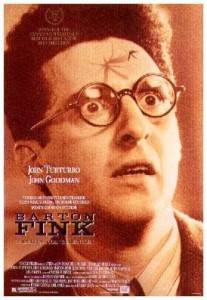So I’m not exactly a huge fan of James Cameron films, full of over-the-top razzle-dazzle, some great images (such as the Titanic sinking, rising into the air and all the unfortunate passengers plummeting into the water) but enough bad melodrama to sicken multiple cruise liners full of moviegoers (such as in the same film, all that silliness of Billy Zane chasing Leo DiCaprio through the watery halls of the Titanic with a gun, like Snidely Whiplash). His most recent film Sanctum (2011) is something of a howler, and typical of many of his films: great images of underwater caving, silly melodrama about bad, greedy cavers vs. tough, stoic cavers. He’s been in the news recently for his deep-ocean dive to the bottom of the Marianas Trench, the deepest point in the ocean, which he filmed and will become a National Geographic special at some point. But his comparison of climate change to the iceberg that will sink our 21st century Titanic—basically Civilization As We Know It, in which our future is tragically bought and sold by Big Oil—is right on, and can be read, via ThinkProgress.org, here:
“Part of the Titanic parable is of arrogance, of hubris, of the sense that we’re too big to fail. Well, where have we heard that one before? There was this big machine, this human system, that was pushing forward with so much momentum that it couldn’t turn, it couldn’t stop in time to avert a disaster. And that’s what we have right now. Within that human system on board that ship, if you want to make it a microcosm of the world, you have different classes, you’ve got first class, second class, third class. In our world right now you’ve got developed nations, undeveloped nations. You’ve got the starving millions who are going to be the ones most affected by the next iceberg that we hit, which is going to be climate change. We can see that iceberg ahead of us right now, but we can’t turn.
“We can’t turn because of the momentum of the system, the political momentum, the business momentum. There too many people making money out of the system, the way the system works right now and those people frankly have their hands on the levers of power and aren’t ready to let ‘em go. Until they do we will not be able to turn to miss that iceberg and we’re going to hit it, and when we hit it, the rich are still going to be able to get their access to food, to arable land, to water and so on. It’s going to be poor, it’s going to be the steerage that are going to be impacted. It’s the same with Titanic. I think that’s why this story will always fascinate people. Because it’s a perfect little encapsulation of the world, and all social spectra, but until our lives are really put at risk, the moment of truth, we don’t know what we would do. And that’s my final word.”
And although I think Cameron is accurate in this assessment, he’s a lightweight compared to science writer E.O. Wilson, whose new book, The Social Conquest of Earth, has been published this month and is tops on my reading list. It begins with this lofty approach: “There is no grail more elusive or precious in the life of the mind than the key to understanding the human condition.” I love that phrase, “The life of the mind”—particularly when you hear it uttered by “Charlie Meadows” (aka Madman Munch, played by John Goodman) in the great Coen Brothers film Barton Fink (1991), as he’s running down the flaming hallway of the Hotel Earle, shooting his shotgun, yelling, “I’ll show you the life of the mind! I’ll show you the life of the mind!”

- January 2026
- November 2025
- October 2023
- September 2023
- September 2021
- April 2020
- September 2019
- May 2019
- August 2018
- February 2018
- January 2018
- October 2017
- August 2017
- June 2017
- May 2017
- March 2017
- February 2017
- November 2016
- October 2016
- May 2016
- April 2016
- March 2016
- February 2016
- January 2016
- November 2015
- October 2015
- September 2015
- June 2015
- May 2015
- April 2015
- March 2015
- December 2014
- September 2014
- August 2014
- May 2014
- March 2014
- February 2014
- January 2014
- December 2013
- November 2013
- October 2013
- September 2013
- August 2013
- July 2013
- June 2013
- May 2013
- April 2013
- March 2013
- February 2013
- January 2013
- December 2012
- November 2012
- October 2012
- September 2012
- August 2012
- July 2012
- June 2012
- May 2012
- April 2012
- March 2012
- February 2012
- January 2012
- December 2011
- November 2011
- October 2011
- September 2011
- August 2011
- July 2011
- June 2011
- May 2011
- April 2011
- March 2011
- February 2011
- January 2011
- December 2010
- November 2010
- October 2010
- September 2010
- August 2010
- July 2010
- June 2010
- May 2010
- April 2010
- March 2010
- February 2010
- January 2010
- December 2009
- November 2009
- October 2009
- September 2009
- August 2009
- July 2009
- June 2009
- May 2009
- April 2009
- March 2009
Recent Posts
- On “Die My Love”: Jennifer Lawrence Channels Her Inner Kristi Noem, and Does Not Write the Great American Novel
- “The Salt Path” (2025): An Underappreciated Film That Includes Actual Humanity
- Our “White Lotus,” Or Life as a Set-Jetter
- On Sleeping With Dogs
- The Year Without a Winter (in the Southwest): 2025-2026
Recent Comments
No comments to show.
